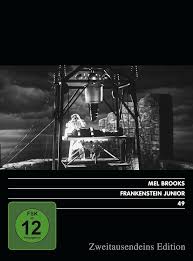
Introduction
Mary Shelley’s 1818 novel Frankenstein has captivated audiences for over two centuries, invoking profound discussions about creation, morality, and human nature. As society grapples with modern scientific advancements, from artificial intelligence to genetic engineering, Shelley’s tale of the monster and its creator has never been more relevant. This narrative serves as a cautionary tale, reflecting our fears and responsibilities as we venture into uncharted territories of science.
Background of the Novel
Originally published anonymously, Frankenstein was a product of its time, emerging from the Romantic movement, which emphasized emotion and nature while critiquing the Industrial Revolution’s mechanization. The story follows Victor Frankenstein, a scientist who creates a sentient being, only to be horrified by the consequences of his ambition. The creature, rejected by society, becomes a tragic figure, highlighting themes of isolation, acceptance, and the quest for identity.
Modern Interpretations and Cultural Impact
In contemporary culture, Frankenstein has influenced countless adaptations in film, theater, and literature. Movies ranging from classic horror films to modern interpretations explore the moral dilemmas and emotional depth encapsulated in Shelley’s original work. The creature has evolved into a symbol of the outsider, representing societal rejection and the complexities of human emotion.
Moreover, the character of Frankenstein’s monster has been analyzed through various lenses, including psychological, philosophical, and sociological perspectives. Scholars have examined the implications of unchecked ambition, the nature of monstrosity, and the ethical implications of scientific exploration. As debates over technology and morality continue, the questions raised by Shelley are ignited anew: What makes a monster? Who is responsible for the creation and its consequences?
Conclusion
The legacy of Frankenstein stretches far beyond its Gothic roots, serving as a profound commentary on the intersection of science and ethics. In an age marked by rapid technological change, the novel serves as a reminder of our responsibilities as creators. As we forge ahead, the themes of exploration, alienation, and human responsibility remain pertinent, allowing Shelley’s work to resonate with each new generation. Readers today are encouraged to reflect on the implications of their actions and the nature of their creations, ensuring that the legacy of Frankenstein endures well into the future.



